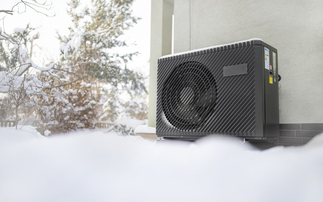Industry leaders are applying current and emerging technologies to help customers achieve sustainable and quiet transport refrigeration
Since the late 1930s, transporting temperature sensitive goods by road and rail depended almost entirely on fossil fuels and high global warming potential (GWP) refrigerants to maintain cargo at the optimum...
To continue reading this article...
Join BusinessGreen
In just a few clicks you can start your free BusinessGreen Lite membership for 12 months, providing you access to:
- Three complimentary articles per month covering the latest real-time news, analysis, and opinion from Europe’s leading source of information on the Green economy and business
- Receive important and breaking news stories via our daily news alert
- Our weekly newsletter with the best of the week’s green business news and analysis







